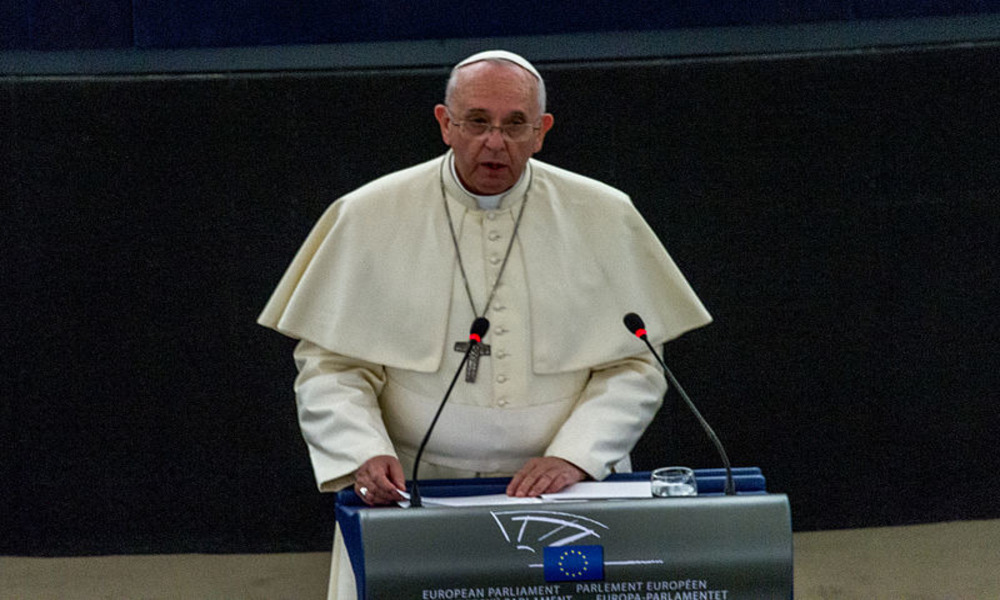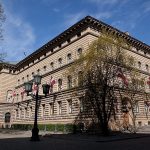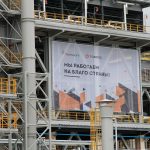BALTIC MONITOR
Date: 3 October 2018
Pope Francis’s Apostolic Visit to the Baltic States
Pope Francis has recently paid the first official visit of the head of the Catholic Church to the Baltic countries a quarter century since Pope John Paul II’s historic visit. At that time, the pilgrimage of John Paul II coincided with the on-going process of regaining independence by three Baltic republics while the Soviet troops, who stationed on their territory, had already left Lithuania and were bound to withdraw also from Latvia and Estonia. Thus, this year’s visit seems to refer to these events as it came amid Russia’s growing threats to the region. Pope Francis’s message, addressed to the Balts during the recent pilgrimage, aimed to strengthen their arduous efforts undertaken in order to construct their independent homelands.

During His four-day pilgrimage, Pope Francis met with the inhabitants of all three Baltic countries, namely Lithuania, Latvia and Estonia. His Apostolic Visit was essentially of an ecumenical nature, mostly due to the fact that the Baltic States are home to almost all branches of Christianity. His message, dominated by the calls for greater solidarity, was addressed not only to the Catholics, who constitute the vast majority of Lithuania’s population, but also to Latvian and Estonian Protestants as well as members of the Orthodox Church inhabiting all three countries.
A 100-year struggle for independence
The Papal visit to the Baltic States had a distinct symbolic dimension as it aimed to commemorate their centenary of independence. Thus, it does not come as a surprise that Pope’s homilies concerned this important anniversary to a large extent. Naturally, His Holiness tackled different issues, varying accordingly to the country He was visiting while his overall message regarded mainly the Baltic efforts in their struggle for regaining independence. He insisted on the turbulent history of Latvians, Lithuanians and Estonia while paying homage to numerous martyrs the Nazi and Soviet occupation as well as the horrors of the Stalinist period, including mass deportations and political repression. Moreover, His Holiness paid visits to several places that played significant role for collective historical memory of the Baltic people, including the Museum of Occupations and Freedom Fights in Vilnius. He also laid flowers at the base of the Freedom Monument in Riga.
During his visit to Tallinn, Pope Francis celebrated a holy mass in Freedom Square; in his homily, the bishop of Rome referred to current geopolitical situation in the Baltic States, saying that “some people speak in a loud voice, full of self-assurance – with no doubts or hesitation” while “others shout and hurl threats about using weapons, deploying troops and implementing strategies – that way they appear to be stronger”. Such particularly remarkable words were clearly addressed to the inhabitants of all Baltic countries and their concerns related to Russia’s aggressive policy towards Europe.
Solidarity
In his sermons, the Bishop of Rome tackled also some other issues than those related to history, security or international affairs. In addition to addressing issues of social solidarity, the Pope spoke about ecumenical existence of representatives of distinct nationalities and religions. Most importantly, His Holiness urged the inhabitants of Baltic countries to demolish all symbolic walls that are currently being constructed by representatives of different nationalities living on the same territory, adding at the same time the society has moral responsibility to take care of its weak and disadvantage members. Interestingly, his message may refer not only to less affluent social strata but also to representatives of some national minorities.
Moreover, in Riga, Pope Francis met with the elderly people whereas in Vilnius, he encountered several thousands of young people. During both meetings, apart from a clear focus on both awakening and sustaining hope, His Holiness sought to nurture social solidarity by emphasizing the urgent need to take care of the elderly, who often had to struggle with loneliness or poverty at the expense of their energy and time devoted to the youth.
Pilgrimage of hope
For the Baltic States, recent Apostolic Visit appeared to be very important also from the socio-political point of view. Such symbolic celebration of the centenary of their independence had both spiritual and political character whereas omnipresent references to the countries’ difficult past, apart from highlighting the importance of the present times as well as all problems faced by contemporary societies, had also intention to praise the Baltic States for their successes achieved over last decades. The Pope emphasized also the fact that the Balts had managed to make a milestone transition from the Soviet sphere of influence to the Western world, as evidenced by their membership in the European Union and NATO structures. Much attention has been also drawn to both the socio-economic and civilizational challenges faced by Latvia, Lithuania and Estonia. On one hand, Pope Francis’s pilgrimage aimed to nurture hope of the society as well as to motive its member to enhance solidarity and further development, but, on the other hand, it mentioned some problematic issues that had eventually failed to be overcome.
_________________________________
All texts published by the Warsaw Institute Foundation may be disseminated on the condition that their origin is credited. Images may not be used without permission.














